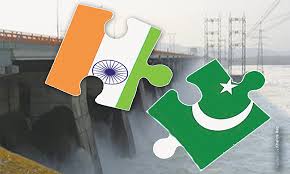The Indus Waters Treaty (1960) has not been immune to the vicissitudes currently affecting India-Pakistan relations. In the aftermath of the attack by Pakistani terrorists on an Indian Army camp in Uri on 18 September 2016, the Government of India (GOI) has indicated its decision, at the highest level, to comprehensively review the functioning of the Treaty. Read more

Mr. Martin Butcher from Oxfam started the presentations by discussing areas of in the Middle East where explosive weapons in populated areas have been identified. A variety of rockets and bombs are being used in Syria and in Yemen, and it is believed that Mosul, Iraq will be subjected to explosive weapons when the government starts its offensive to recapture the city from the Islamic State. In Aleppo, Syria, the civilian area has been massively destroyed, including the water mains, depriving civilians who remain in the city access to clean water. In Yemen, he stated his belief that both sides of the war were committing international humanitarian law violations, noting that many interviewed refugees claim to have left their cities due to the bombings in civilian areas. Lastly, in Mosul, Iraq, the city is currently occupied by the Islamic State. More than three million people are displaced throughout the country and 1.2 million civilians remain in Mosul. He noted that the Iraqi government is prepared for a full frontal and quick liberation attempt, which he believes will undoubtedly result in civilian causalities.
The Admiralty (Jurisdiction and Settlement of..
China’s One-Road-One Belt Initiative: A New Model of Global Governance
Cancellation of the SAARC Summit: Has India Succeeded in Isolating..
New Zealand promises "constructive approach" to India’s NSG entry bid
U.S. to deploy THAAD anti-missile battery in South Korea in 8-10 months
Trump election puts Iran nuclear deal on shaky ground
Netanyahu elated at Trump’s condemnation of Iran nuclear pact
Kerry says Iran nuclear deal has made world safer, rejecting Trump criticism